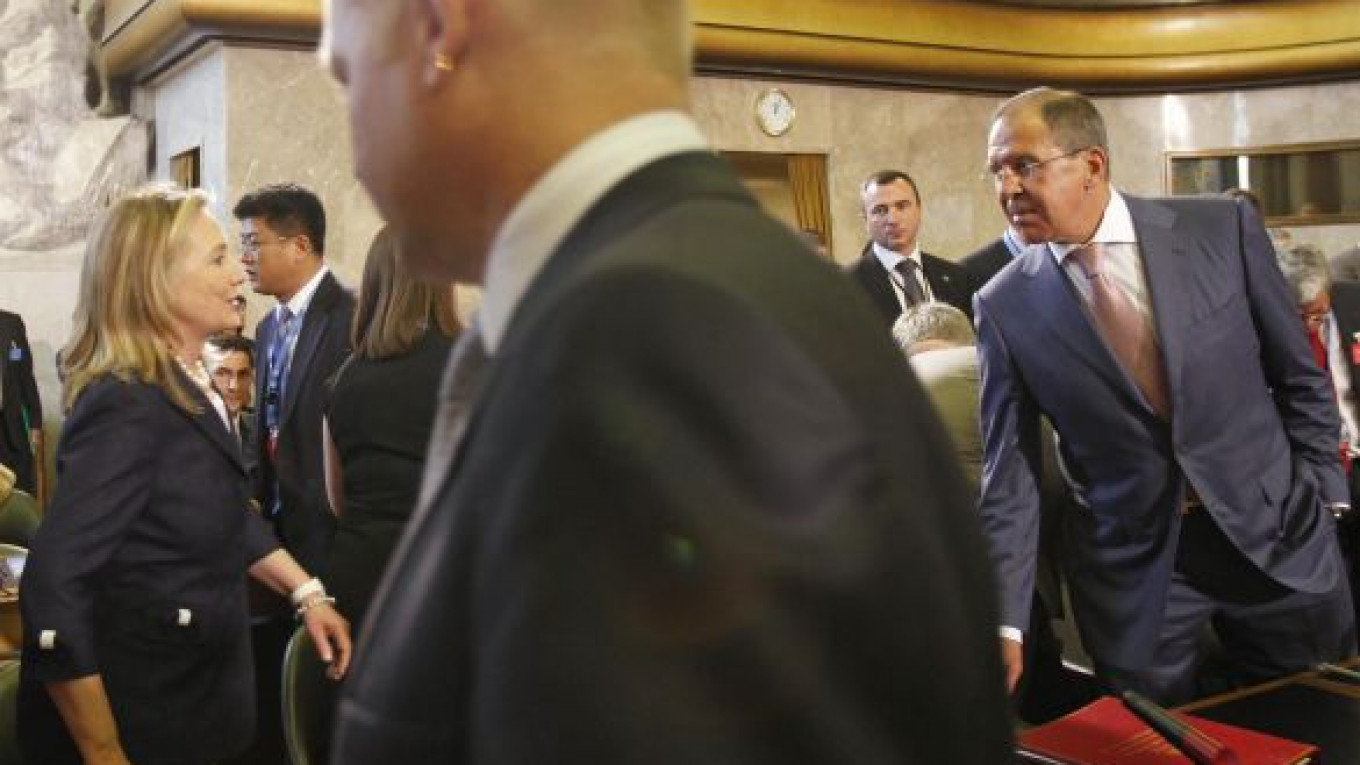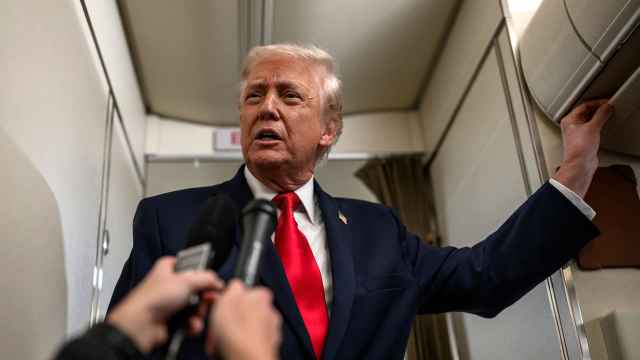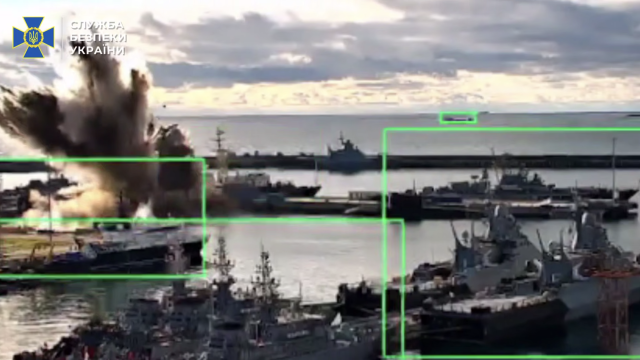GENEVA — An international conference on Saturday accepted a UN-brokered peace plan that calls for the creation of a transitional government in Syria, but at Russia’s insistence the compromise agreement left the door open to Syria’s president being part of it.
The United States backed away from insisting that the plan should explicitly call for President Bashar Assad to have no role in a new Syrian government, hoping the concession would encourage Russia to put greater pressure on its longtime ally to end the violent crackdown, which the opposition says has claimed more than 14,000 lives.
But even with Russia’s most explicit statement of support yet for a political transition in Syria, it is far from certain that the plan will have any real effect in curbing the violence.
A key phrase in the agreement requires that the transitional governing body “shall be formed on the basis of mutual consent,” effectively giving the present government and the opposition veto power over each other.
Syrian opposition figures immediately rejected any notion of sharing in a transition with Assad, though the agreement also requires security force chiefs and services to have the confidence of the people. Assad’s government had no immediate reaction, but he has repeatedly said his government has a responsibility to eliminate terrorists and will not accept any non-Syrian model of governance.
U.S. Secretary of State Hillary Clinton insisted Saturday that Assad would still have to go, saying it is now “incumbent on Russia and China to show Assad the writing on the wall” and help force his departure.
“There is a credible alternative to the Assad regime,” she said. “What we have done here is to strip away the fiction that he and those with blood on their hands can stay in power.”
Kofi Annan was appointed the special envoy in February, and in March he submitted a six-point peace plan that he said the Assad regime accepted. It led to the April 12 cease-fire agreement, which failed to hold.
Moscow had refused to back a provision that would call for Assad to step aside, insisting that outsiders cannot order a political solution for Syria and accusing the West of ignoring the darker side of the Syrian opposition. The opposition has made clear that it would not take part in a government in which Assad still held power.
Foreign Minister Sergei Lavrov, who held unsuccessful talks on Syria with Clinton in St. Petersburg on Friday, underlined that the plan does not require Assad’s ouster, saying there is “no attempt in the document to impose on the Syrian people any type of transitional process.”
Lavrov accused armed opposition groups in Syria of provoking the government to use force disproportionately.
“We cannot say that the regime should simply withdraw its heavy artillery that it is shooting at armed citizens,” he said, referring to one of the conditions that the UN had set for sending truce monitors to Syria. “Certain armed groups and those who sponsor them are always trying to provoke the spiraling violence.”
Chinese Foreign Minister Yang Jiechi called for all sides to end the violence “without attaching any conditions” but said that no one from the outside could make any legitimate decisions for the Syrian people.
More than a year into the uprising, Syria’s opposition is still struggling to overcome infighting and inexperience, preventing the movement from gaining the traction it needs to instill confidence in its ability to govern.
The UN plan calls for establishing a transitional government of national unity, with full executive powers, that could include members of Assad’s government and the opposition and other groups. It would oversee the drafting of a new constitution and elections.
Annan said following the Geneva talks that “it is for the people of Syria to come to a political agreement.”
“I will doubt that the Syrians who have fought so hard to have independence … will select people with blood on their hands to lead them,” he said.
The envoy had earlier warned the permanent members of the UN Security Council — Britain, China, France, Russia and the United States — that if they failed to act at the talks in Geneva, they would face an international crisis of “grave severity” that could spark violence across the region and provide a new front for terrorism.
“History is a somber judge, and it will judge us all harshly if we prove incapable of taking the right path today,” he said.
Syria, verging on a full-blown civil war, has endured a particularly bloody week, with up to 125 people reported killed nationwide on Thursday alone.
A Message from The Moscow Times:
Dear readers,
We are facing unprecedented challenges. Russia's Prosecutor General's Office has designated The Moscow Times as an "undesirable" organization, criminalizing our work and putting our staff at risk of prosecution. This follows our earlier unjust labeling as a "foreign agent."
These actions are direct attempts to silence independent journalism in Russia. The authorities claim our work "discredits the decisions of the Russian leadership." We see things differently: we strive to provide accurate, unbiased reporting on Russia.
We, the journalists of The Moscow Times, refuse to be silenced. But to continue our work, we need your help.
Your support, no matter how small, makes a world of difference. If you can, please support us monthly starting from just $2. It's quick to set up, and every contribution makes a significant impact.
By supporting The Moscow Times, you're defending open, independent journalism in the face of repression. Thank you for standing with us.
Remind me later.






